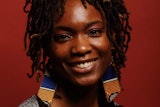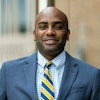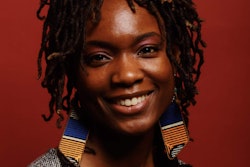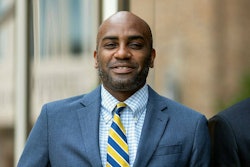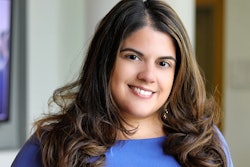NEW YORK
The research taking place in Africa on educational equity most often benefits the scholars who publish studies and has little direct impact on the lives of those being studied, a researcher said during a presentation Monday at the 52nd Annual Conference of the Comparative & International Education Society.
Does current research on Africa forward the goal of educational equity? Four scholars sought to answer that question at a session at this year’s conference titled, “Gaining Educational Equity Around the Word,” taking place this week at Teachers College at Columbia University in New York.
Dr. Frances Vavrus, a faculty member in the Department of International and Transcultural Studies at Teachers College, raised the issue of researchers’ responsibilities to work toward equity. She’s come to the conclusion that most research has little direct impact on the lives of those being studied. It is the researchers who benefit by having their studies published, she said.
Vavrus has been studying Tanzanian youth. When she began her research in 2000 and went to interview various families about education, parents readily answered questions and accepted the idea that the findings of the study would eventually have an impact on their children. When she returned to Tanzania in 2006, there was a sense of frustration on the part of the parents. She recalled on Monday how they asked how the study would help them, and some said the money spent for the research team would better be used to pay for schooling.
Vavrus suggested researchers take something akin to the Hippocratic Oath that doctors take, making them responsible for the well being of their patients. She has tried to find ways to engage in the lives of the people she’s researching and not just collect data. Some of her suggestions include streamlining the cost of research and giving the communities money to buy building materials and pay contractors to improve the physical conditions of schools. Vavrus has even talked her friends into making small contributions to a fund that can immediately impact the schools she is studying.
She said researchers should begin to set goals of educational equity beyond their own research. To make this viable, there needs to be academic incentives.
“When I think about a tenure review process, we always have external reviewers,” Vavrus said. “People from other universities who are considered leaders in the field or people with expertise come in to evaluate someone’s portfolio — not just a single article or book, but all the work someone has done for six years. Why not have some of the people from where we worked be among those external reviewers? They contribute, as part of the evaluation, the impact of what we’ve been doing [which] might be having on their community.
“[The review will consider] not only the impact we have as scholars on our academic community, which is largely what matters and sometimes only what matters,” she added.
She said review structures have become too institutionalized, in part, to protect faculty members from arbitrary decisions. There could be some latitude and individuality built into reviews. This would enable researchers to find creative ways to do their research as well as make targeted efforts for improvement within the communities they study.
Also featured on the panel Monday was Dr. Keith Lewin of the University of Sussex, who spoke about equitable access and the Education For All agenda. He noted that UNESCO’s EFA has shown uneven patterns of growth and cautioned that the United Nation’s Millennium Development Goals are a list, not a recipe. It is important that researchers are aware of the difference between access and quality. He said, “Half the kids are silently excluded.” Although they are in school, they are not necessarily learning and many may be in the wrong grade. Going forward, researchers should delve further into the quality of learning.
Joan Oviawe, a doctoral student from Washington State University, presented “Complicating the Discourse: Indigenous Epistemologies and Research on African Education.” She read a poem written by an African woman whose husband was a university student. In it, she said how he told her he had no time to answer her silly questions and their native language did not enable him to really speak about the things he was learning. Oviawe spoke of educational reforms that would address the needs and realities of ordinary Africans. Oviawe noted there are many useful Western practices, but they must be combined with indigenous practices, and local voices must be considered to achieve educational equity.
Dr. Parfait Eloundou-Enyegue of Cornell University discussed “Is Current Research on Africa and Education Helping to Forward the Goal of Increased or Improved Educational Equity?” His answer was: yes and no. He said research must gradually move from focus on specific constituencies — such as gender — to a broader focus. He also noted that much more research is done in English speaking countries vs. French speaking countries, and that doesn’t portray a broad picture.
Click here to post and read comments
© Copyright 2005 by DiverseEducation.com
